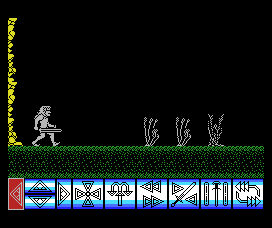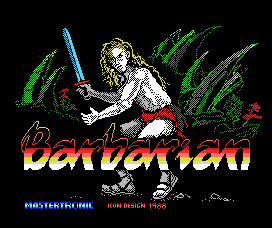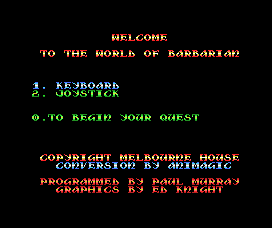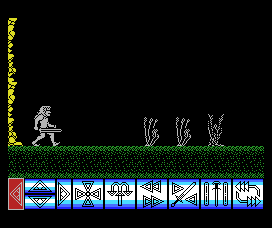Barbarian for MSX
MSXGame controls in browser
Show Controller & SystemClick on play MSX game now button first to load the game, you can change the settings by clicking on the Settings icon / Help & Settings menu. Control keys:
Barbarian
Online version of Barbarian for MSX. In this game you play the role of a barbarian who must navigate his way through dangerous dungeons. The game is played from a third person side scrolling perspective and also has platform jumping parts to it. The barbarian is controlled by using left and right on the joystick to move and up and down is used to scroll through the various commands at the bottom of the screen...
Game details
Other platforms online
Barbarian is currently playable only in version for MSX.54%
rating (31 users voted)
MSX 1/2 Home Computers
Online emulated version of Barbarian was originally developed for the MSX a standardized home computer architecture,
announced by Microsoft and ASCII Corporation in 1983. It was initially conceived by Microsoft as a product for the Eastern sector, and jointly marketed by Kazuhiko Nishi,
then vice-president at Microsoft and director at ASCII Corporation. Microsoft and Nishi conceived the project as an attempt to create unified standards among various
home computing system manufacturers of the period, in the same fashion as the VHS standard for home video tape machines.
MSX systems were popular in Japan and several other countries. Sony was the primary manufacturer of MSX systems at the time of release, and throughout most of the
products lifespan, producing more units than any other manufacturer. Eventually 5 million MSX-based units were sold in Japan alone.
Nishi's standard was built around the Spectravideo SV-328 computer. The standard consisted primarily of several off-the-shelf parts; the main CPU was a 3.58 MHz Zilog Z80, the Texas Instruments TMS9918 graphics chip with 16 KB of dedicated VRAM, the sound and partial I/O support was provided by the AY-3-8910 chip manufactured by General Instrument, and an Intel 8255 Programmable Peripheral Interface chip was used for the parallel I/O such as the keyboard.



